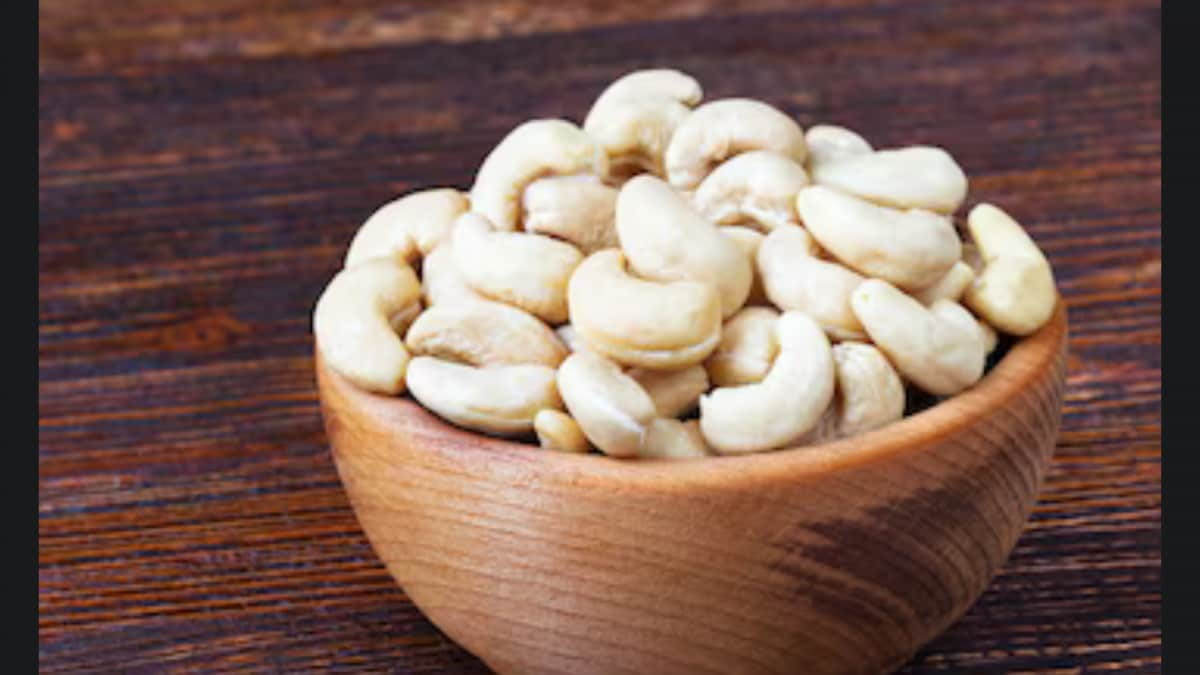Last Updated:
Cashews are generally considered healthy, but if consumed in the wrong season, in excessive quantities, or improperly, they may do more harm than good, especially during summer
It’s important to understand why cashews can be harmful during the summer season and who should avoid them. (News18 Gujarati)
Many people enjoy eating dry fruits during the summer season. Not only are they a convenient snack, but they also offer numerous health benefits. However, did you know that some dry fruits, like cashews, can actually be harmful in the heat? Cashews are generally considered healthy, but if consumed in the wrong season, in excessive quantities, or improperly, they may do more harm than good, especially during summer.
It’s important to understand why cashews can be harmful in hot weather, who should avoid them, and how to consume them safely if you choose to include them in your diet.
Why Cashews Can Be Harmful in Summer
The summer season has a significant impact on our bodies. During this time, we usually consume cooling foods like lemon water, watermelon, cucumber, and curd to stay hydrated and avoid issues like heatstroke or dehydration. Cashews, however, are known as a heating food, meaning they increase the body’s internal heat. If consumed daily and in large quantities during summer, cashews can raise body temperature unnecessarily. This may lead to problems such as mouth ulcers, excessive thirst, headaches, stomach irritation, or itchy skin.
Obesity And Digestive Issues
Cashews are high in fat and calories. If someone drinks less water during summer, eats oily street food, and also consumes a large quantity of cashews regularly, their chances of gaining weight increase.
Moreover, the digestive system tends to slow down slightly during hot weather. This makes it more difficult to digest heavy foods like cashews. As a result, people may experience bloating, gas, acidity, or indigestion. Therefore, cashews should be consumed in moderation during the summer.
Risk of Allergies and Skin Reactions
Some individuals may be allergic to cashews without even realising it. In the summer, when heat, sweat, dust, and dirt are more prevalent, such allergies and skin irritations can worsen. If cashews are consumed daily and in excess, the issue can become more severe.
This is especially important for people with sensitive skin, who should be cautious when including cashews in their summer diet.
Is It Necessary To Avoid Cashews Completely in Summer?
There’s no need to eliminate cashews entirely from your diet. When consumed in the right quantity and in the correct way, cashews do not pose a problem.
It’s generally safe to eat 3 to 4 cashews per day, preferably after soaking them in water overnight and consuming them the next morning. Soaking reduces their heating effect.
If cashews are eaten alongside cooling foods like curd, buttermilk, lemon water, or cucumber, their adverse effects can be minimised.
- First Published:

